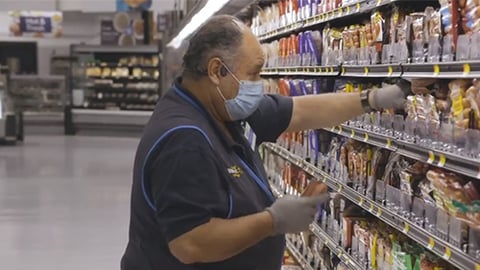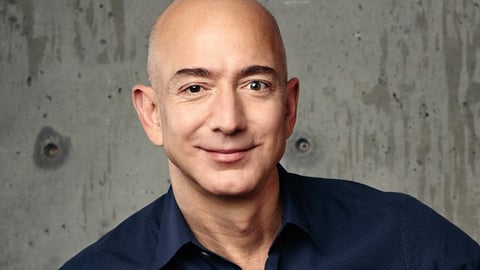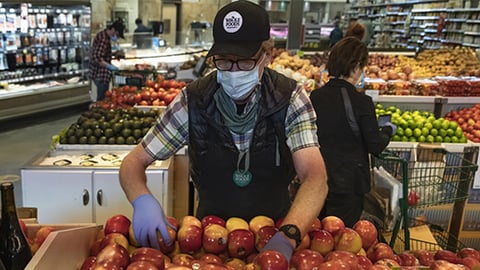Amazon Wins Fresh Chance for More Food Delivery
Amazon could emerge from the coronavirus pandemic with a stronger presence in food delivery, thanks to a recent decision from a U.K. national agency. That provisional ruling, in fact, could lead to longer-term benefits for Amazon food and grocery retail in the United States and other countries.
The Competition and Markets Authority (CMA), tasked with monitoring potential anticompetitive activity in the United Kingdom, recently reversed itself and gave provisional approval for Amazon to invest in Deliveroo. After the London-based food delivery startup announced almost a year ago that Amazon would provide $575 million in fresh capital – an investment that would have positioned Amazon for a serious run in the food delivery space against Uber Eats – the authority turned down the proposal, saying that the deal would significantly reduce competition in that part of the food retail industry.
But then the pandemic hit.
With many restaurants closed at least temporarily, Deliveroo’s revenue stream took a massive hit, according to the authority’s most recent decision, issued on April 17.
“While Deliveroo has sought to expand its supply of convenience groceries during the crisis, these sales are limited and have not made up for losses in its restaurants business,” the authority said when explaining its reversal. “As a result, Deliveroo recently informed the CMA that the impact of the coronavirus pandemic on its business meant that it would fail financially and exit the market without the Amazon investment. Deliveroo’s submission was supported by evidence from the company’s financial advisers.”
The authority reasoned that Amazon is at this point the only investor that could provide enough funding for Deliveroo to continue operating in the United Kingdom. The authority also said that during the ongoing pandemic, the closing of Deliveroo would do more harm than good in terms of healthy market competition.
“This could mean that some customers are cut off from online food delivery altogether, with others facing higher prices or a reduction in service quality,” said Stuart McIntosh, chair of the CMA’s independent inquiry group. U.K. law requires the authority to issue its final decision on June 11 after officials review industry and public reaction to the provisional determination.
New Amazon Foothold?
Amazon’s first try at gaining a foothold in the food delivery space – that is, via a service focused on restaurant orders, not grocery products – fizzled out as Uber Eats and other companies quickly came to dominate those retail and logistical activities. But the pandemic promises to bring lasting changes to the larger world of food retail, grocery included. As Amazon faces a new opportunity to establish itself with food delivery, the e-commerce, cloud computing and logistical giant is also enjoying brighter prospects when it comes to capturing the loyalty of more grocery customers.
Before the pandemic, Amazon’s grocery energies were largely focused on bringing its Whole Foods Market operation further into the Amazon ecosystem and engaging in an increasingly fierce competition for a larger share of consumer grocery spend with Walmart, among other food retailers. Now, as consumers endure social distancing and alter their shopping habits in response to pandemic protection needs and guidelines, Amazon is investing big in logistics, workforce and other areas. Amazon clearly hopes to make its grocery options as attractive and efficient as possible during this time, and win over new food and grocery customers.
Potential Speed bumps
The latest “shareowners” letter from Amazon CEO Jeff Bezos offers at least rough confirmation that the company is crafting an updated food retail plan during the COVID-19 outbreak.
Additionally, hiring has skyrocketed for both Amazon and Walmart – and has also increased for other food retailers – as those businesses strive to keep up with consumer demand while protecting workers and remaining safe overall. Amazon, Walmart and many other food retailers are also beefing up their online ordering, pickup and delivery options, trends that seem all but certain to help shape the post-pandemic grocery world.
More specifically, Amazon’s potential chance to invest in Deliveroo comes as the U.S. company continues to strengthen its own delivery prowess – efforts that many experts believe could eventually enable Amazon to cut or severely reduce its reliance on FedEx, UPS and the U.S. Postal Service. Grocery and other food retail and delivery services could help with that long-term Amazon push.
Even so, Amazon will face some speed bumps along the way, especially as the pandemic drags on.
For example, workers in Amazon warehouses are increasingly voicing complaints about labor conditions and pandemic protection efforts, apparently taking advantage of fresh leverage they've gained during what amounts to a labor shortage for Amazon retail logistics. On Tuesday, for instance, some 300 Amazon warehouse workers in the United States reportedly were planning a walkout to call for better coronavirus safety measures. In France, Amazon remains in what Reuters recently called a “stand-off with unions over sanitary conditions amid the coronavirus outbreak.”
Despite those labor problems, it’s a safe bet that Amazon will find new ways to further fund and grow its food retail efforts during the pandemic and after it fades.
Under the Austin, Texas-based Whole Foods Market banner, Seattle-based Amazon is No. 10 on Progressive Grocer’s 2019 Super 50 list of the top grocers in the United States.





